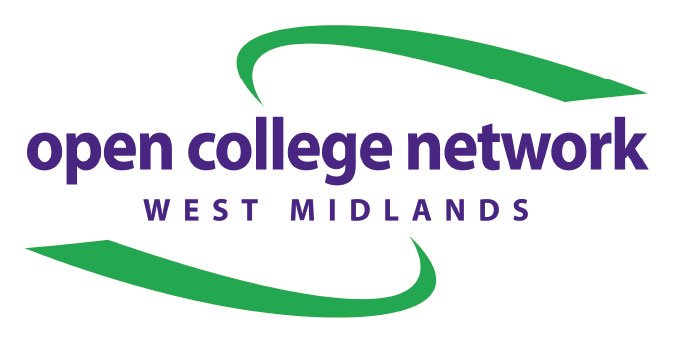Access to Higher Education Diploma (Midwifery)

You will learn about bringing a new life into the world, along with the social skills needed to prepare and support future parents and carers. You will study post-partum care and how to navigate the healthcare system for the benefit of expectant parents. You will learn about Cell Biology, Human Reproduction, and Heredity, and you will discover the history of the NHS and the roles and responsibilities of the Midwife at each stage of pregnancy.
Alongside the intricacies of Midwifery, your online study materials will also prepare you to study at a distance by helping you organise and plan your time. You will also learn about academic writing skills and how to write an academic assignment.
Unit 1: Preparing to Study
On completion of this module you will:
- Understand how study is organised and planned
- Understand how to apply theories of learning in relation to personal approaches to learning
- Understand a range of constraints upon study
- Understand the importance of assessment feedback
Unit 2: Academic Writing Skills
On completion of this module you will:
- Be able to write with relevance in responding to an academic task
- Know how to interpret and discuss ideas and issues in responding to a set, academic writing task
- Be able to summarise for academic purposes, selecting key points, information or central ideas
Unit 3: Preparing a Written Assignment
On completion of this module you will:
- Understand how to use key information sources
- Understand why sources are acknowledged and referenced
- Understand a range of reading strategies
- Understand note-making methods
- Understand how to plan, draft and produce a written assignment
Unit 4: Cell Biology
On completion of this module you will:
- Understand the structure and organisation of cells, including stem cells
- Understand cellular metabolism
- Understand how cells grow and divide
Unit 5: The History of the National Health Service
On completion of this module you will:
- Understand the background to and the founding principles of the National Health Service
- Understand how political reforms have shaped the National Health Service
Unit 6: Human Reproduction, Growth and Development
On completion of this module you will:
- Understand the structure and function of the human reproductive system
- Understand how hormones regulate the reproductive system throughout life
- Understand the sequence of events from conception to childbirth
Unit 7: The Role of the Midwife in Antenatal Care
On completion of this module you will:
- Understand the roles and responsibilities of the midwife within the antenatal period
- Understand the role of the Nursing and Midwifery Council in midwifery regulation concerning the antenatal period
Unit 8: Introduction to Psychology
On completion of this module you will:
- Understand the importance of research in psychology
- Understand the main approaches in psychology
- Understand ethical issues in psychological research
Unit 9: Human Nutrition and the Digestive System
On completion of this module you will:
- Understand the structure and functions of the organs of the digestive system
- Understand nutrients and their sources
- Understand the components of a healthy diet and the consequences of an unhealthy diet Understand how diet may influence health
Unit 10: The Role of the Midwife in Intrapartum Care
On completion of this module you will:
- Understand the role and responsibilities of the midwife concerning the intrapartum period
- Understand the role of the Nursing and Midwifery Council in midwifery regulation concerning the intrapartum period
Unit 11: Social Factors in Health and Social Care
On completion of this module you will:
- Understand sociological factors influencing the relationships between patients and health professionals
- Understand the role of social motivational factors in health and ill health
- Understand the significance of social support networks in healthcare and maintenance
Unit 12: The Human Muscular and Skeletal Systems
On completion of this module you will:
- Understand the anatomy, organisation and function of the muscular system
- Understand the anatomy, organisation and function of the skeletal system
- Understand how the muscular system and skeletal system interact in locomotion
Unit 13: The Role of the Midwife in Postnatal Care
On completion of this module you will:
- Understand the roles and responsibilities of the midwife concerning the postnatal period
- Understand the role of the Nursing and Midwifery Council in midwifery regulation concerning the postnatal period
Unit 14: Human Immunity
On completion of this module you will:
- Understand non-specific defences against disease
- Understand specific immunity
- Understand the biology of vaccination
Unit 15: Approaches to Health
On completion of this module you will:
- Understand different definitions of health and ill health
- Understand different explanatory models of health and ill health
- Understand contrasting sociological perspectives on health
- Understand the different ways in which people respond to illness
Unit 16: Cell Division and Heredity (Health)
On completion of this module you will:
- Demonstrate a knowledge of cell division
- Demonstrate an understanding of heredity
- Demonstrate an understanding of mutation and variation
Unit 17: The Brain and Nervous System (Psychology)
On completion of this module you will:
- Understand the major sub divisions of the nervous system
- Understand the structure and function of glial cells and neurons
Unit 18: Human Disease and Prevention
On completion of this module you will:
- Understand the categories and causes of disease using infectious disease to illustrate your answer
- Understand the epidemiology of commonly occurring diseases/conditions
- Understand preventative measures for a chosen disease or condition
Unit 19: Equality and Diversity within Healthcare
On completion of this module you will:
- Understand equality and diversity within healthcare
- Understand the rights of the individual in a healthcare setting
- Understand the impact of equality and diversity legislation on healthcare provision
If you choose to start an Access to Higher Education Diploma, you will need a GCSE Grade A-C in maths and English (or Functional Skills Level 2 or new GCSE Grade 4-9) with a desire to continue on to study a related degree at university. If you do not hold these qualifications then you must be working towards them whilst completing your Access to HE Diploma.
Our Access to Higher Education Diplomas fulfil entry criteria for a broad range of university degrees and can be used in conjunction with the standard UCAS application process. In short, Access to HE Diplomas have a track record of helping learners get to the university and degree of their choice. Learners must bear in mind each university has their own set of admission criteria and places are subject to demand. Varying admission criteria can include but are not limited to the following:
- Number of credits to be attained at merit or distinction level.
- Successfully passing a face-to-face interview at the University.
- Passing a University’s proprietary literacy and numeracy assessments.
- Completion of specified work placements or work experience.
- GCSE Grade A – C in maths and English (or equivalent Level 2 such as Functional Skills).
Learners must undertake their own research to ensure their Diploma gives them the best possible chance of gaining entry to their university of choice. It is not possible for learndirect to accept any liability if any Access to Higher Education Diploma student fails to secure an offer from a higher education institution.
*You will have access to the course for 12 months only, after which, you can purchase extensions.
A range of units make up this qualification, with an assignment at the end of each. You will submit your work to your tutor for marking and tailored feedback. You must acquire 60 credits in total in order to achieve the Access to HE Diploma (Midwifery). Of these credits, 45 will be taken from graded units which focus on the academic subject areas included in the course. The remaining 15 come from ungraded units included to help you to improve your academic writing and study skills.
As part of your programme you will also receive help as well as guidance on your university application and the research you need to do to get the most out of your diploma.

Open College Network West Midlands
On successful completion of the Open College Network West Midlands Access to Higher Education Diploma (Midwifery) you will receive a QAA recognised Access to HE Diploma (Midwifery) (QAA ref: (40006669).This course has been assigned 60 credits.
Open College Network West Midlands are a national Awarding Organisation, regulated by Ofqual, the Quality Assurance Agency for Higher Education (QAA) and Qualifications Wales, to develop and award nationally recognised qualifications.
Open College Network West Midlands work in partnership with employers, training providers, colleges, universities, schools and voluntary and community organisations to offer vocational credit-based qualifications, Access to Higher Education Diplomas and quality assured Customised Accreditation that enables learners gain employment or to progress into further learning and Higher Education. They also Quality Endorse organisations internal training and skills delivery.
Free -Day Trial
Register for a -day FREE trial (your payment details will be taken at checkout but not charged). Once the trial period ends you will be charged the monthly fee unless you cancel. Cancel Anytime. No Commitment.- 100% Online
- Full Tutor Support
- No Credit Checks or Credit Agreement